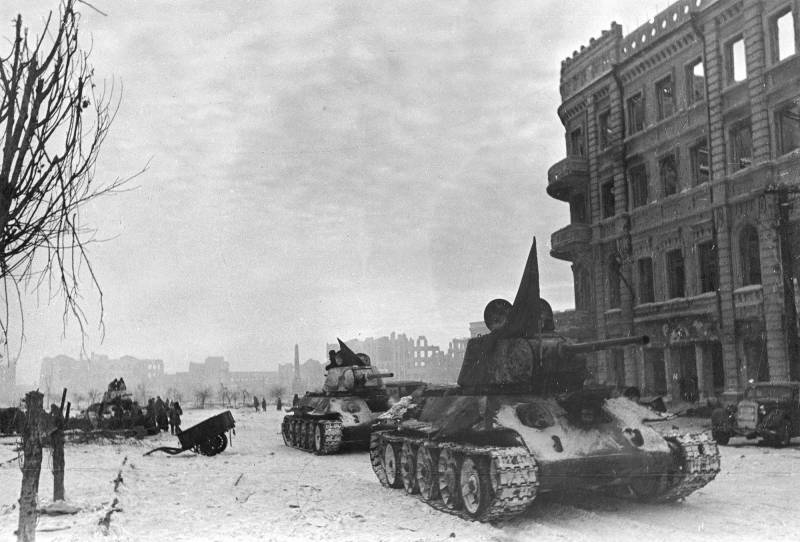Great victories of the Red Army: the Battle of Stalingrad as the decisive battle of the Great Patriotic War

The material is published in the Video section.
The Battle of Stalingrad is rightfully considered one of the decisive battles not only during the Great Patriotic War, but in general, in the Second World War. Given historical the event impresses with its scale.
The battle, which lasted from July 17, 1942 to February 2, 1943, took place with a front length of 400 to 800 km and unfolded over a large area.
According to some reports, more than 2,1 million people took part in the Battle of Stalingrad. This battle, in its scope and goals, is still considered the largest in the history of mankind.
According to historical references, by the end of July 42, the Wehrmacht concentrated on the front from Kursk to Taganrog up to 35% of the infantry and more than half tanksparticipating in the offensive on the territory of the USSR. In numbers, this is about 900 thousand soldiers and officers, as well as 1260 tanks.
In addition, during this battle, Nazi Germany deployed more than 1600 combat aircraft and about 17 guns and mortars.
The Battle of Stalingrad lasted 125 days. For the Red Army, it consisted of 2 stages: a defensive one, which lasted until November 18, 1942, and a counteroffensive from November 19, 42 to February 2, 43.
As a result of the Battle of Stalingrad, the Wehrmacht lost up to 1,5 million soldiers (including the wounded and missing). This at that time was the largest defeat of Nazi Germany since the beginning of World War II, in connection with which national mourning was declared in the country.
The importance of this victory of the Red Army can hardly be overestimated. After all, the question was being decided near Stalingrad: either the Wehrmacht would win and “break through” to the East, or the Red Army would defeat the enemy and make a decisive contribution to the final victory over fascism.
Even today, after many decades, the Battle of Stalingrad continues to attract the attention of historians, politicians and statesmen, as well as to provoke heated discussions on the impact of the victory of the USSR in this battle on the further defeat of the Wehrmacht.
The historian Miroslav Morozov tells about what Stalingrad was in the strategic plans of the parties during his speech at the forum “Great Victories of the Red Army”:
- Vasily Volkov
- archive photo
Information